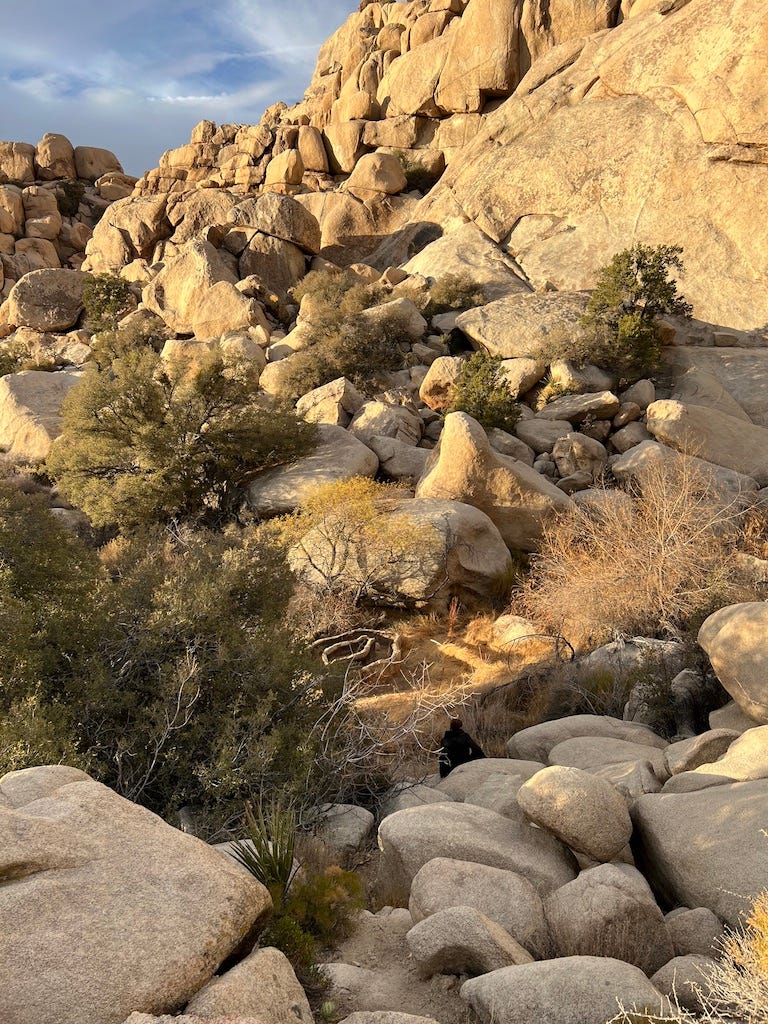Several years ago, I fell in love with Gabor Maté. He was a guest on a favorite podcast, and I recognized him as an understanding and vulnerable soul. He had an air of confident humility, of having learned much through many experiences and hardships. With his elegant Eastern European accent, his calm and steady speech, and his compassion, I was content to “sit at his feet” and learn.
Gabor Maté has come across my path many times since, and with his most recent book, The Myth of Normal: Trauma, Illness & Healing in a Toxic Culture (published in 2022), he's entered the national and international consciousness more and more. Gabor Maté is a Jewish-Canadian physician, speaker, writer and wise elder. He has written and co-authored numerous books and shares his insights on stages and in podcasts, seminars and retreats. But most of all, he's lived his own ongoing healing journey with transparency and heart. What made me fall in love with him, so to speak, was his unvarnished humanity. Even when I saw a photo of him with the podcast host, it made me want to cry: his deeply-lined face, weary but compassionate eyes covered by unruly eyebrows, and his lack of facade really touched my heart. Dr. Maté is no plastic motivational speaker trying to show us how he's got it all together.
He speaks to the truth of the human experience and sheds light on the possibilities for healing—even with the realities of “capital-T trauma” and “small-t trauma.”
Capital-T Trauma occurs when things happen to vulnerable people that should not have happened, as, for example, a child being abused, or violence in the family, or a rancorous divorce, or the loss of a parent… “small-t traumas”…what a seminal researcher poignantly called the “less memorable but hurtful and far more prevalent misfortunes of childhood”…These might include bullying by peers, the casual but repeated harsh comments of a well-meaning parent, or even just a lack of sufficient emotional connection with the nurturing adults.
Although there are dramatic differences in the way the two forms of trauma can affect people's lives and functioning—the big-T variety, in general, being far more distressing and disabling—there is also much overlap. They both represent a fracturing of the self and of one's relationship to the world.
It's been a while since I read The Myth of Normal, but I took it out this morning because Maté came to mind last week. Most of the women I know are in pain right now. Not one of my female friends is skipping along in life, only upward and forward. These are stressful times overall—as a society and as a world, yes. Both men and women are affected, but women are “going through it” or “on the struggle bus” in broader ways than men. They are carrying more than their fair share of the collective angst in the culture right now.
Last week was very stressful for me. I won't go into major detail, but my husband was traveling all week when a lot was going on here: I was physically low, we were in and out of power outages due to high winds and fire danger, my car completely died (spontaneous engine failure with no warnings) on the day when a fire broke out across the highway and we were getting prepped for an evacuation that might come.
In the milieu, key people in my life were majorly stressed, angry and grieving over the flurry of stunning orders from the new administration. Others were devastated by the LA fires with the losses of homes, businesses, and community and the sense of constant watchfulness and insecurity as fire danger was high every day.
And on Saturday, in a normally very supportive setting, I was approached by a new member at our NAACP (National Association for the Advancement of Colored People) meeting who put me in my place about how I should be doing my work. My colleagues have since reassured me that this woman was totally in the wrong and that I am very much valued and supported in the organization, which I already knew and felt. I know my place and my worth working alongside and under the direction of my friends in this Black-led organization. So I communicated effectively with the offending person and am back in equilibrium. I forgive the person. And I continue forward.
But it reiterated to me what I’ve been feeling acutely all week: women are tangibly stressed. It brought to mind what Gabor Maté has said about women carrying the pain in society, how we carry not only our own stresses and problems, but how we also take responsibility for the dysfunction of society and the suffering of others.
I figured this woman who criticized me (without even knowing me) was dealing with pain. Like all the folks at our meeting, she had resolved to make a difference by joining our NAACP branch but was also likely very rattled with the events of the week. The tearing down of DEI (Diversity, Equity and Inclusion) policies, the fears of many BIPOC residents in SoCal of the overreach of ICE (U.S. Immigration and Customs Enforcement) with the recent anti-immigration push, the fires and our vulnerability therewith, the release of more than a thousand January 6 insurgents, many of whom are violent criminals—that’s a lot to take in. And that is not even counting all the issues within our own homes, families and circles.
Add to all of that, being a woman who is trying to make change and move forward in this atmosphere. Then on top of that, this lady being a Black woman in this hostile atmosphere. And who knows what else she might be dealing with in her personal life?
I figure, some of that stress came out at me. Now if this type of behavior continues toward me or others, we won't treat it as an isolated incident, but for now I give her the benefit of the doubt with grace. Ultimately, I recognize and own that everyone is on edge around here—especially the women and especially before our rain started. (Hallelujah! The rains came on Saturday night!) So let me share this quote from the empathetic and wise Dr. Maté, who has worked with thousands of patients and has studied all the factual research of these matters that affect women in our society:
…in this society women are expected to and commanded to and programmed to absorb all the pain of their environment and to make it their responsibility. And then, so the women carry the pain. That's why women have 80 percent of autoimmune disease, by the way, because they carry the pain for everybody… The pressure on women is completely unnatural.1

So ladies, if you're hurting and in pain right now (emotionally, spiritually, physically), if you're “going through it”, you can be assured that you're not the only one. Simply considering myself and the women in my life, we try to deal with pain along the whole spectrum of behaviors/conditions: depression, checking out, sleeping, isolating, over-busyness, escapism, anxiety, controlling, rage, outbursts, harsh judgments, physical symptoms, addictive behaviors, you name it. We are all trying to cope with the discomforts and pain in our own lives and in the lives around us.
And most of us reach a point where it feels like too much. If you're an extrovert, you might lash out at others. If you're an introvert, you might bury your feelings in avoidance. If you're like me, an ambivert (pretty much equally both introvert and extrovert), you might be confused with what to do with all you feel inside and around you.
How can we stop the pain in ourselves? And how can we stop from absorbing the pain around us? The pain can't be stopped necessarily, but how we handle it can be transmuted. Looking within us, the pain is there for a reason: to push us toward growth and healing. The wound should not always be opened and reopened, but it should be tended to so it can heal and scar over. It must be addressed, so we are not constantly activated regarding that particular issue.
Regarding others around us, as I have written before, we need to consider which pain/discomfort actually belongs to us and is our responsibility to address and which pain belongs to those around us or to the collective that we cannot take responsibility to fix. We must own our issues and commit to our healing journey. This is where I like what Maté writes after the initial chapters in his book where he talks about trauma, mental health, societal dysfunction and disease:
Having navigated the concentric circles of human health and illness from the cellular to the social, and having traced the inextricable and reciprocal connections between them, we now delve into the “good news”: the topic of healing. The news may be encouraging, but that's not to say it's easy. How to approach healing, after all, in these troubled times? How to move toward health in the context of a socioeconomic system staunchly uninterested in remedying any of its root maladies, and in the face of a pandemic that has both highlighted and deprived us of so much we take for granted? How to keep hope alive when the odds seem so prohibitive?
And what is healing anyway?
When I speak of healing, I'm referring to nothing more or less than a natural movement toward wholeness. Notice that I do not define it as the end state of being completely whole, or “enlightened”, or any similar psychospiritual ideal. It is a direction, not a destination; a line on a map, not a dot.
Nor is healing synonymous with self-improvement. Closer to the mark would be to say it is self-retrieval. In fact, our modern self-improvement culture, which has to a large extent been co-opted by the same consumerist forces responsible for the conditions we have been chronicling—can too easily obscure or complicate the healing journey. When we heal, we are engaged in recovering our lost parts of self, not trying to change or “better” them. As the depth psychologist and wilderness guide Bill Plotkin told me, the core question is “not so much looking at what's wrong, but where is the person's wholeness not fully realized or lived out?”
Healing is also distinct from being cured: the latter means the absence of disease; the former implies coming to wholeness. “It's possible to be healed but not cured, and it's possible to be cured but not healed,” my colleague Dr. Lissa Rankin points out. “Ideally healing and curing happened together, but this isn't always the case.”
So, what about all the pain and turmoil around us which women are more likely to absorb and feel responsible for? What about all the noise in our society that keeps us constantly activated and over-stimulated, believing we have to be better and do better and take in everything that everyone throws at us? What about our need to just be a person moving through a day with intention—responding to what is going on in our immediate environment without having to be an outsized change-maker, influencer, or constant information consumer? Gabor Maté addresses the frenetic nature of what society causes us to expect of ourselves:
As Thomas Merton noted dolefully in 1948, “We live in a society whose whole policy is to excite every nerve in the human body and keep it at the highest pitch of artificial tension, to strain every human desire to the limit and create as many new desires and synthetic passions as possible, in order to cater to them with the products of our factories and printing presses and movie studios and all the rest.”
Constantly living at that “highest pitch of artificial tension” leaves many people dissatisfied, on edge, anxious—utterly captured by an addictive process that alienates them from real needs, real emotions, real concerns, real life.
If unable to achieve what we desire, we experience this as a personal failure—even if social conditions are arrayed against us so that success is out of reach.
In other words, we must learn to simply live without such high expectations of success, of having it all and being it all. There is enough to manage being a citizen of this nation without the added pressure to be everything to ourselves and everyone around us. And that means turning down the messaging that capitalistic, consumeristic, information-overloaded society bombards us with daily.
There is enough going on in our lives, homes, and communities without being over-saturated with overstimulation. Friends, if the news makes you anxious, enraged, or despairing, don't watch it. If social media makes you feel inadequate, or nervous, or frustrated, moderate your involvement. Read select articles or posts by people with a balanced approach—avoiding the visual and auditory stimulation that goes with TV or screen-based news. Or take a break altogether.
Stop perpetuating the idea that your care about something must be demonstrated by how much content you consume or how outwardly active you are or how strong you appear on an issue. Now is not the time for appearances. Now is the time for getting true with ourselves. The hard work cannot be avoided.
I have much more to say based on my recent revisiting of The Myth of Normal, but for now I’m coming to this: I think I “fell in love with” Gabor Maté as a fellow empathic human, because I sensed truth in him. God's truth—without any spiritual or Christian or Jewish or any other religious label. Someone who has lived life, seen the underbelly of himself and society and still offers hope and change.
Any movement toward wholeness begins with the acknowledgement of our own suffering, and of the suffering in the world. This doesn't mean getting caught in a never-ending vortex of pain, melancholy, and, especially, victimhood; a new and rigid identity founded on “trauma”—or, for that matter, “healing”—can be its own kind of trap. True healing simply means opening ourselves to the truth of our lives, past and present, as plainly and objectively as we can. We acknowledge where we were wounded, and, as we are able, perform an honest audit of the impacts of those injuries as they have touched both our lives and those of others around us.
This can be exceptionally difficult, for myriad understandable reasons. No matter what degree of discomfort our illusions cover over, the truth hurts, and we don't like hurting if we can help it—even if we sense that something better could lie on the far side of the pain... Many of us will be ready to seek the truth only once we have concluded that the cost of not doing so is too high, or once we become sufficiently acquainted with our own ache of longing for the real…
There are exceptions, but I myself have never encountered anyone who was not spurred along their path of growth and change by some setback or loss, some illness, anguish, or alienation. Fortunately—or unfortunately, depending on how we choose to see it—life has a way of delivering the requisite suffering right to our doorstep.
“Truth” is a big little word, easily misconstrued. I am not speaking about some ultimate spiritual Truth; nor am I referring to purely intellectual verities or verifiable facts, as in “true or false.” If that were all, then we could “study, study into truth” and every academic faculty would be staffed by modern-day Buddhas. Where, for all its merits, has our mighty intellectual capacity got us? Right to where we are: an unjust world, threatened self-extinction, untold and needless pain and privation in a universe of abundance, the spread of alienation and despair. In fact, our cerebral talents are all too readily recruited by the part of us that wants to deny how things are: there is a reason “rationality” and “rationalize” are linguistic siblings.
The truth I speak of is much more modest and down-to-earth: a clear look at how it is, how things actually happen to be at this moment. This is the kind of truth that ushers in healing. To access it, we will have to tap into something more resourceful than our smarts…
And as for how we have been imprinted from our childhoods, from adverse events, from being bathed in society’s toxicities, he goes on to say:
We can do nothing about the world that created our mind, that may have instilled in us limiting, harmful, untrue beliefs about ourselves and others. However—and here's the good news I alluded to—we can learn to be responsible for the mind with which we create our world moving forward. The capacity to heal is born of the willingness to do just that, to take on that responsibility. Such willingness is not a once-and-for-all declaration but a moment-by-moment commitment, one that can be regenerated when we lose touch with it. I, for one, have to keep reminding myself to do so. Nor is it an invitation to self-imposed naïveté or blithe so-called positive thinking. It is about the willingness to reconsider our entire view.
Friends, as we move forward in our week, I pray that each one of us women (the majority of my readers are women), and men too, recognize where we can change, where we as individuals can transform our pain and suffering, where we can support but not carry others in their pain, and where we can reprogram our minds away from the influences that traumatized and fragmented us in the first place.
I pray that we ultimately “do it” and “be it” with love and understanding. And that requires Divine access. We cannot do it or be it on our own. We must surrender this to the all-knowing, all-seeing, all-wise, all-loving God, who is available to us at all times.
“In this is love not that we loved God but that God loved us and sent the Son as an atoning sacrifice for our sins.”2
That's the truth that supports and enlivens us to move toward wholeness in ourselves, our families, our communities, and our world. This truth of Divine Love for us also helps us to let go of the tendency to carry the pain that is in the environment around us, to clearly see what we are meant to work on, and what is for others to accept as their responsibility.
I’m sending love and a big hug as we continue on our healing journeys. May we be encouraged that we are not alone and that we are connected as healers rising.
For truth and transformation,
Jen
From a reel on Instagram posted by Nia Clark @nia_on_tv
1 John 4:10







